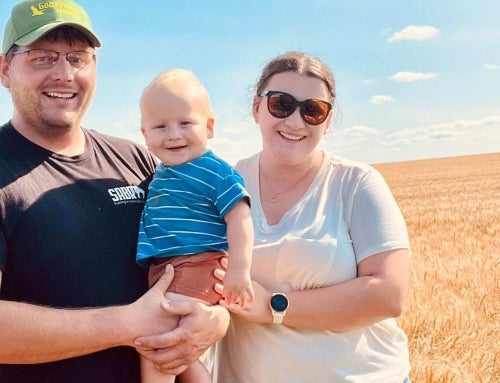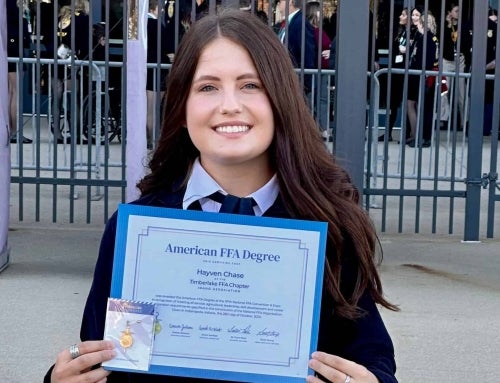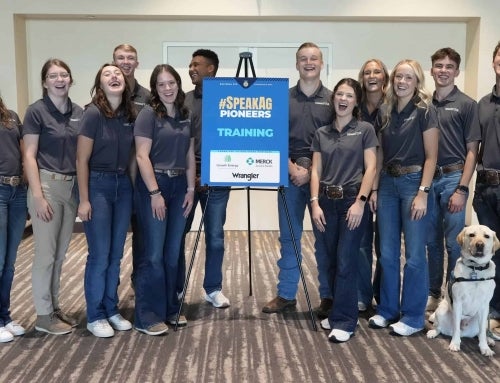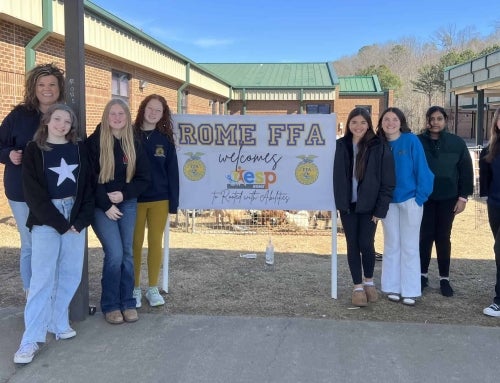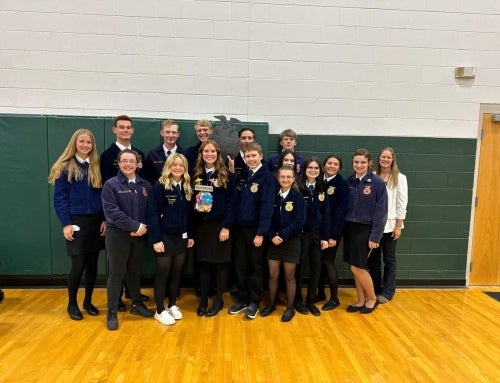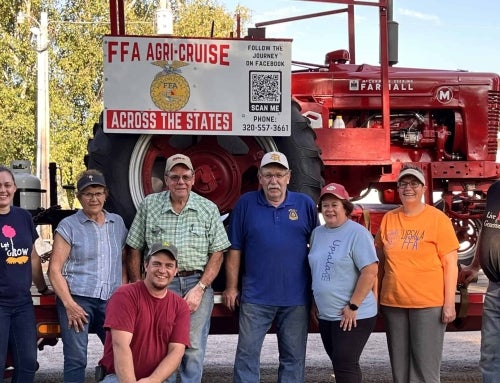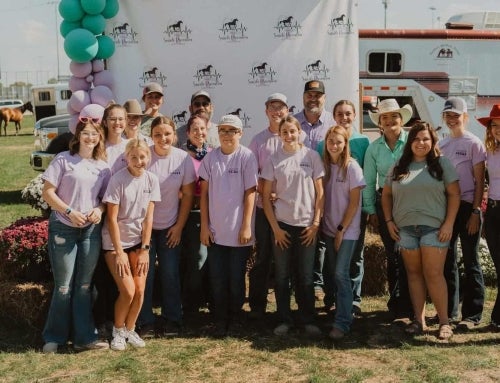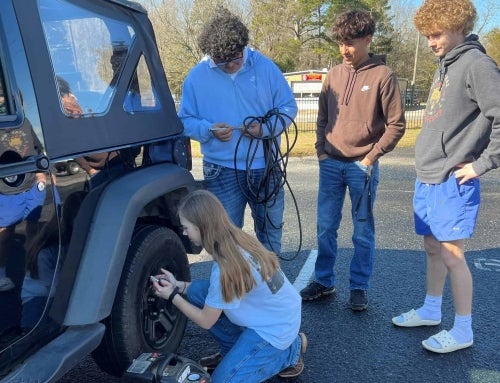Soil health expert Steve Rosenzweig of global food company and FFA sponsor General Mills is a popular speaker and writer on soil health principles and practices. In honor of Earth Day, observed on April 22, we asked him why this has become a front-burner issue for farmers and agribusiness and what farmers and others are doing to unravel these underground secrets.
New Horizons: Why are we seeing a renewed interest in soil health now?
Steve Rosenzweig: I think it’s a combination of new insights from soil science research, innovations by farmers and ranchers, and a big educational campaign by the Natural Resources Conservation Service (NRCS).
NH: What are some healthy soil practices farmers are incorporating?
SR: There are six principles they are implementing in a system – minimize soil disturbance, keep the soil covered, maximize plant diversity, keep a living root in the ground as long as possible throughout the year, integrate livestock and do this all within the unique context of your farming operation. There are hundreds of practices that can be used to achieve those principles, and practices are emerging in different contexts. For instance, in Canada, farmers are experimenting with intercropping, where multiple cash crops grow at the same time to maximize diversity. In Kansas, they’re terminating cover crops with a roller-crimper to minimize soil disturbance.
NH: Is there an easy way to begin to measure soil health?
SR: One simple thing anyone can do is take a shovel and dig. Look at the color (darker is better), the smell (earthy and rich) and how crumbly it is (like cottage cheese).
NH: What are the costs and returns to soil health practices?
SR: Cover crop seed, fencing and water for livestock, and new equipment can potentially add costs when transitioning. There is also the cost of time to learn new things. But the returns can be great. Farmers can maintain or increase yields while reducing expensive inputs. They can improve resilience to weather extremes. Maybe most importantly, farmers who are managing for soil health report be- ing more optimistic about the future, having more fun farming, and being less stressed. That’s not to mention all of the benefits to the environment and society more broadly.
NH: Why is this effort important to General Mills?
SR: As a food company that’s been around for over 150 years, we know that the only way we’ll be around for another 150 is with resilient farmers and strong ecosystems. We are piloting a range of strategies to figure out how to most meaningfully grow this movement.
NH: Does this topic suggest career opportunities for young people?
SR: Conservation districts, NRCS, consultants, university Extensions and farmers need good employees to improve soil health. Knowledge and passion, strong communication skills and leadership are all traits that make an effective soil health practitioner. The entire industry is yearning for more people like that.



